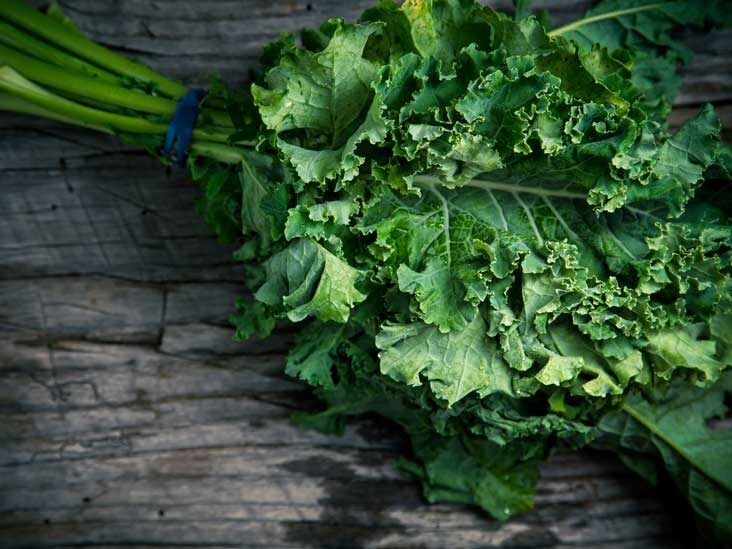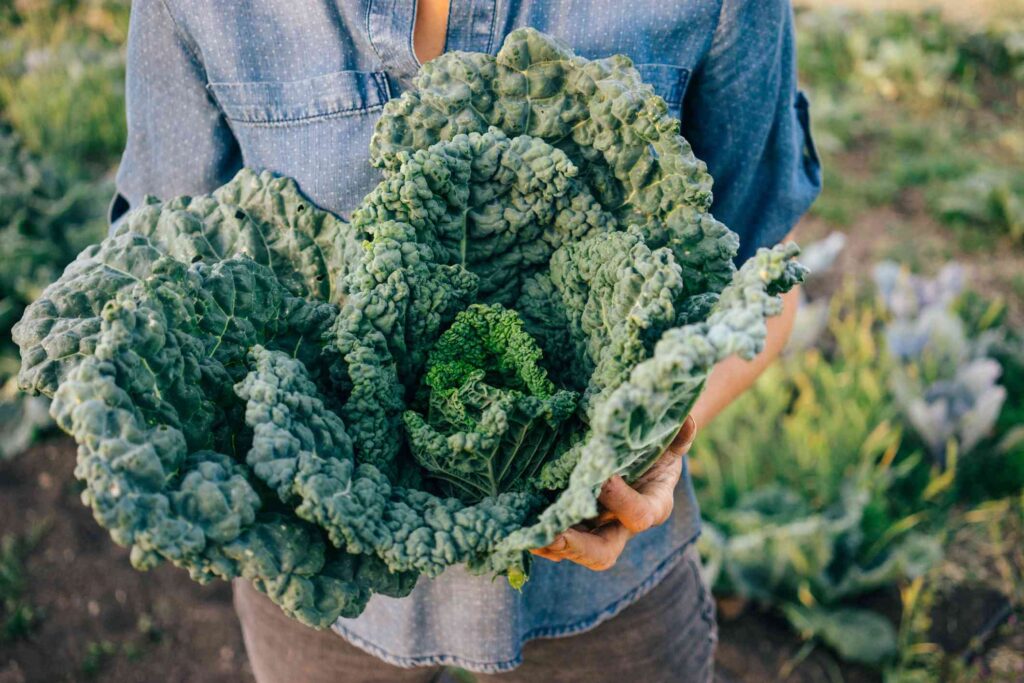Kale stands out as one of the most nutrient-rich vegetables, securing its status as a top superfood. Its vibrant green, leafy appearance signals the abundance of vitamins, minerals, and antioxidants it offers. Whether you aim to enhance your diet, increase energy, or strengthen your immune system, kale is a nutritional powerhouse with vast health benefits.
Why Is Kale So Nutritious?
Part of the cruciferous vegetable family, which includes broccoli, cauliflower, and Brussels sprouts, kale is low in calories but exceptionally high in essential vitamins and minerals, making it an ideal choice for health enthusiasts.
Key nutrients in kale include:
- Vitamin K: Vital for blood clotting and bone health, one cup of raw kale provides nearly seven times the recommended daily intake.
- Vitamin A: Rich in beta-carotene, it supports vision, skin health, and immune function.
- Vitamin C: Essential for immune support, skin health, and collagen production, kale offers more Vitamin C per cup than an orange.
- Calcium: A great plant-based source, crucial for bone and dental health.
- Potassium: Supports heart health by regulating blood pressure.
- Iron: Important for red blood cell production and energy levels.
- Antioxidants: Contains powerful antioxidants like quercetin and kaempferol, which help combat oxidative stress and reduce inflammation.

Health Benefits of Kale
The unique nutrient profile of kale translates to numerous health benefits. Here’s why kale should be a dietary staple:
1. Enhances Heart Health
Kale’s high fiber, potassium, and antioxidant content contribute to heart health by lowering cholesterol and reducing blood pressure, thereby decreasing the risk of cardiovascular diseases.
2. Improves Skin Health
Thanks to its rich Vitamin A and Vitamin C content, kale enhances skin health by promoting collagen production and protecting against free radical damage, reducing signs of aging like wrinkles and fine lines.
3. Strengthens the Immune System
With a blend of Vitamin C, Vitamin A, and antioxidants, kale boosts the immune system, helping your body fend off infections and diseases.
4. Supports Weight Management
Low in calories yet highly filling, kale is perfect for weight-loss or weight-maintenance diets. Its high fiber content promotes satiety and reduces hunger, while its nutrient density ensures you get essential vitamins and minerals without overconsumption.
5. Promotes Bone Health
High in calcium, Vitamin K, and magnesium, kale helps maintain strong bones. Vitamin K is particularly important for bone mineralization, aiding in the prevention of osteoporosis and other bone-related conditions.
6. Aids Detoxification
Kale’s fiber and sulfur content support detoxification processes in the body. Its high antioxidant levels help neutralize toxins and free radicals, promoting overall health.
7. May Reduce Cancer Risk
As a member of the cruciferous vegetable family, kale contains compounds like sulforaphane and indole-3-carbinol, which have been linked to cancer prevention by neutralizing cancer-causing substances and inhibiting cancer cell growth.

Incorporating Kale into Your Diet
Kale’s versatility makes it easy to include in various dishes. Here are some simple, delicious ways to enjoy kale:
- Smoothies: Add a handful of raw kale to your morning smoothie for a nutrient boost.
- Salads: Use raw kale as a salad base. Massaging the leaves with olive oil and lemon juice softens them and enhances flavor.
- Soups and Stews: Add chopped kale to soups, stews, or broths during the last few minutes of cooking to maintain texture and nutrients.
- Stir-Fries: Sauté kale with garlic and olive oil for a quick, nutritious side dish.
- Kale Chips: Toss kale leaves in olive oil, sprinkle with salt, and bake for a healthy, crunchy snack alternative to potato chips.
Tips for Buying and Storing Kale
- Buy Fresh: Look for firm, dark green leaves. Avoid yellow or wilted leaves.
- Store Properly: Refrigerate kale in a plastic bag to keep it fresh for up to a week.
- Wash Before Use: Wash kale thoroughly before consumption to remove dirt or pesticides.
Conclusion
Kale is a nutritional dynamo offering a multitude of health benefits, from enhancing heart health to bolstering the immune system and improving skin health. With its rich array of vitamins, minerals, and antioxidants, incorporating kale into your diet provides your body with essential nutrients to thrive.
